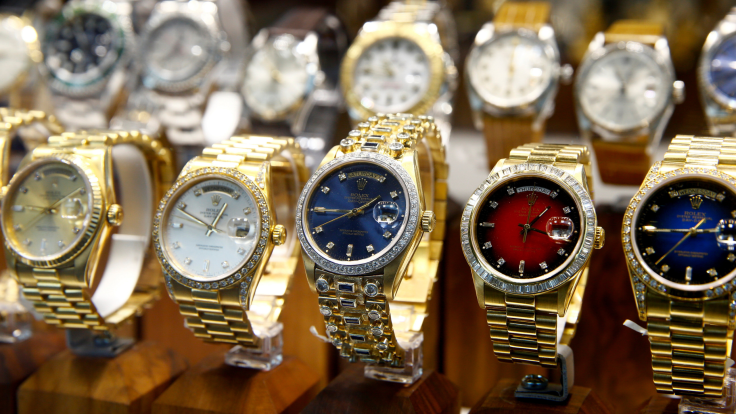
To many people, possessing an expensive watch from a luxury brand can make them feel like they own a valuable asset.
This is because the market value of watches can increase over time, allowing luxury watch owners to cash in, leading to large profits. For those interested in following this hustle, it can be treated as similar to lucrative investment opportunities.
However, Jean-Frederic Dufour, the CEO of Swiss watch manufacturer and designer Rolex, has urged people not to view their luxury watches as something to profit from.
Speaking to Swiss news outlet NZZ at the Watches and Wonders event in Geneva last week, he mentioned: "I don't like it when people compare watches to stocks. It sends the wrong message and is dangerous. We make products, not investments."
During the COVID-19 pandemic, the interest in second-hand watches garnered strong interest and led to price surges. From January 2021 to March 2022, the WatchCharts Overall Market Index spiked 72%.
This occurred as retail investors were keen to branch out from cryptocurrency and meme stocks, so they dipped into the watch market to make money from that sector.
The rise of the second-hand watch market caused Rolex to start authenticating its products through official certificates in 2022.
Despite having this popularity during the pandemic, the price of second-hand watches has plummeted recently, with Subdial reporting that there has been a 40 per cent drop in the last two years.
This sharp decline is caused by a lack of economic growth and the recent lifting of interest rates by the Federal Reserve. Borrowing costs shot up from approximately zero to roughly five per cent between May 2022 and last July.
As a result of the Federal Reserve's decision, people have become more likely to resist spending big on expensive goods such as watches.
Even though there has been a decline in the popularity of second-hand watches, Rolex still endured a very successful 2023 as the manufacturer generated a record-breaking $11.5 billion in sales figures. This was a bump of 11 per cent from company sales in 2022.
Despite this recent success, Dufour believes his company is in a difficult period ahead, and it will be tough to lower prices due to the watch market's vulnerable position.
He explained: "2024 will be challenging. It marks the end of a phase where all manufacturers have been doing well. When markets weaken, retailers come under pressure to cut prices. This is extremely problematic because discounts damage emotional products like ours."
Partly to do with Dufour's pessimistic outlook for Rolex in 2024 is the rising costs of raw materials, such as gold. Thirty years ago, one kilogram of gold would cost around 18,000 Swiss francs, but now it can put one back 66,000 Swiss francs.
Last year, the chairman of Patek Philippe, Thierry Stern, was among those in the luxury watch industry who predicted that there would be a noteworthy drop in demand. This led to his manufacturer producing between just 60,000 and 70,000 makes of the highly popular Nautilus sports watch each year.







